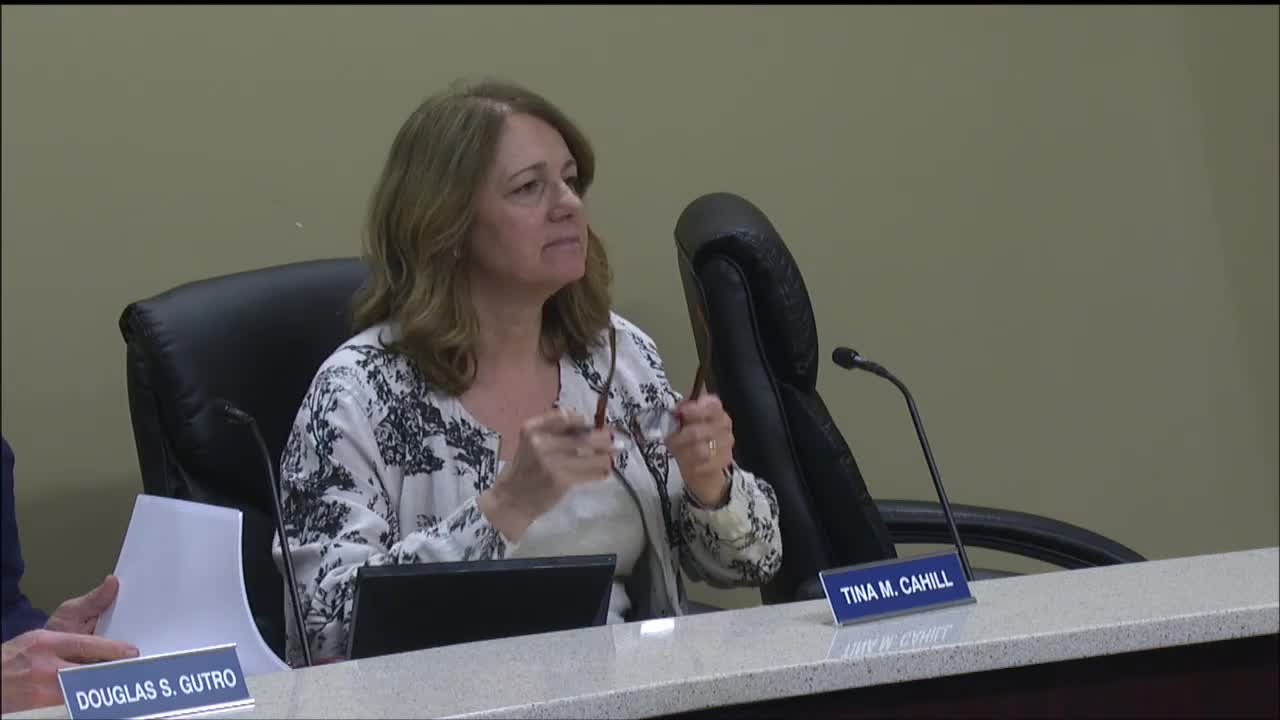Article not found
This article is no longer available. But don't worry—we've gathered other articles that discuss the same topic.
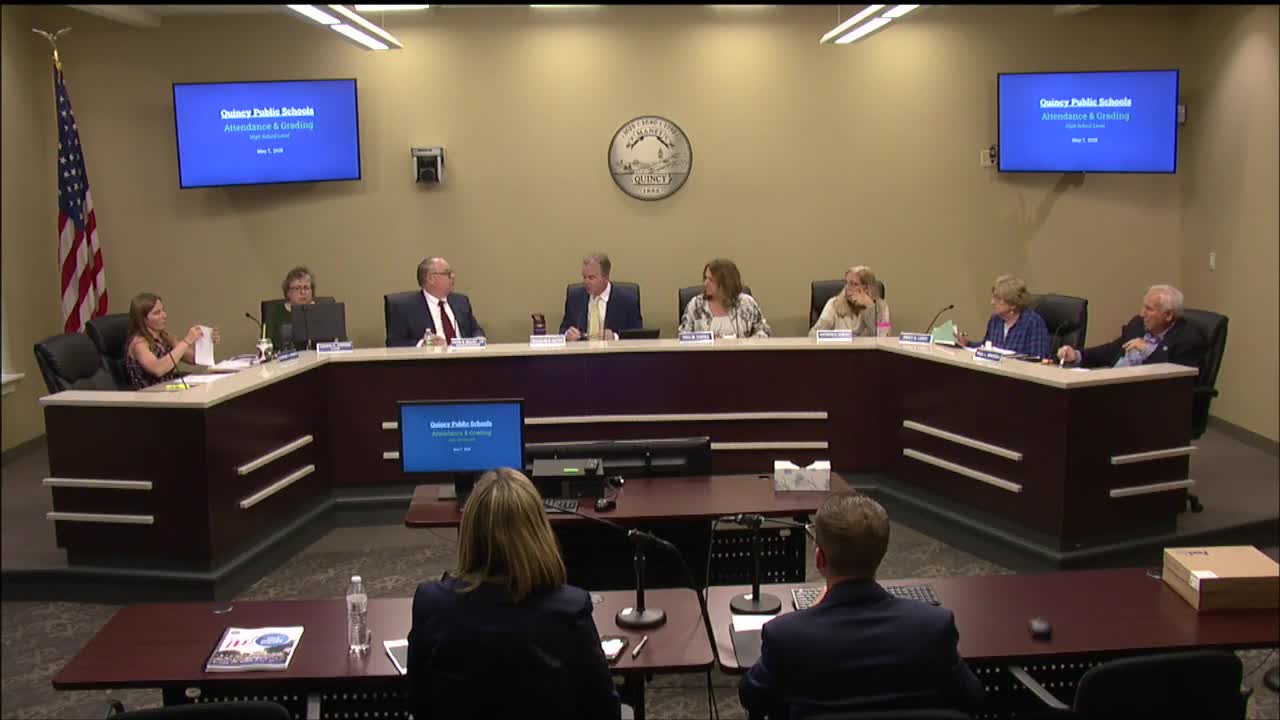
Quincy Public Schools proposes lowering unexcused-absence threshold, shifts consequence from grades to credits
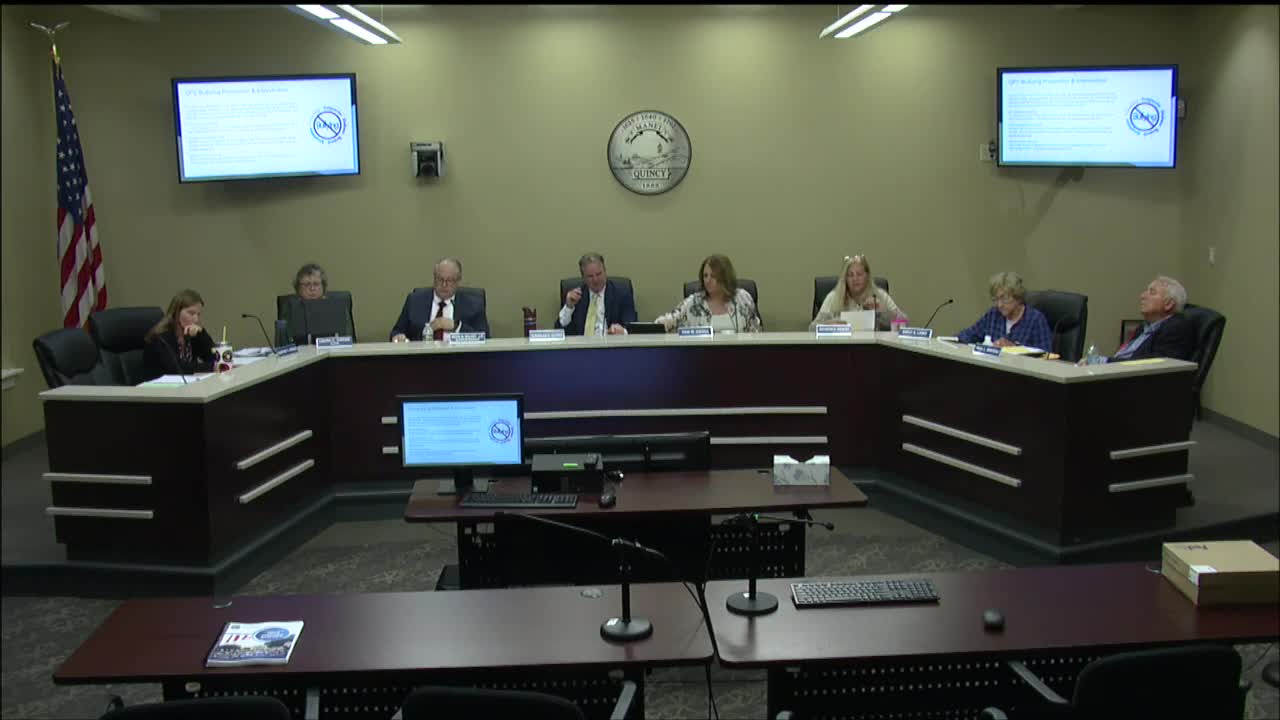
School committee OKs making new elementary school rooftop available for 25-year solar lease
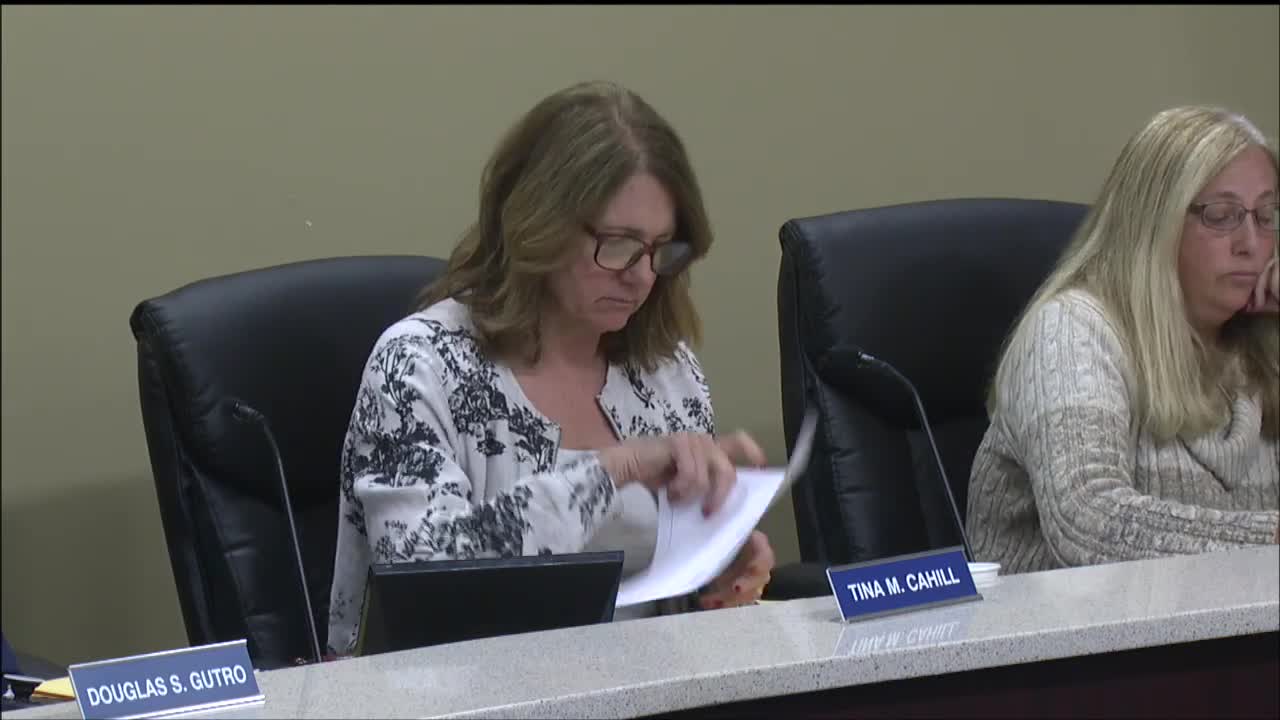
School committee approves transfers to cover special-education tuition and transportation shortfalls
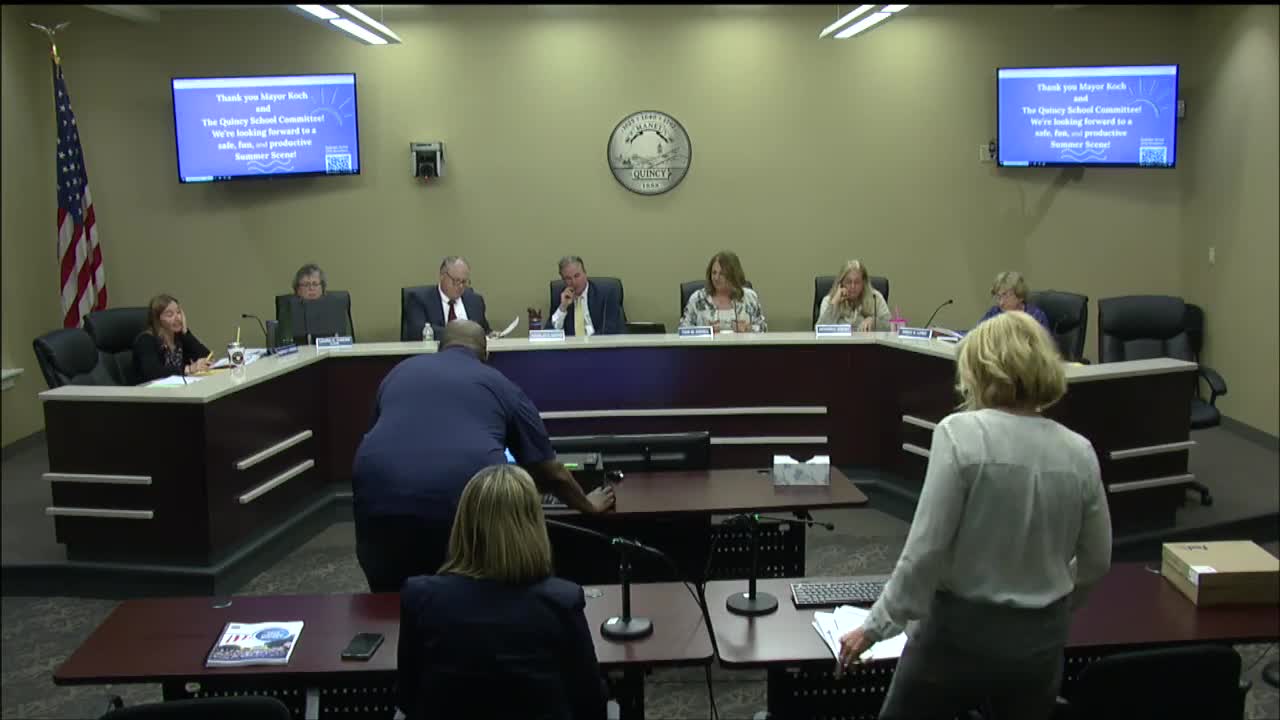
Quincy Public Schools updates bullying-prevention plan; principals briefed PTOs, staff study program impact
